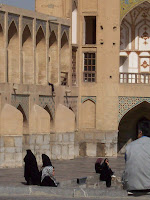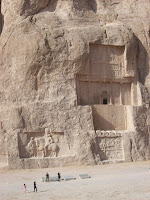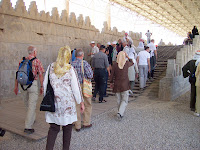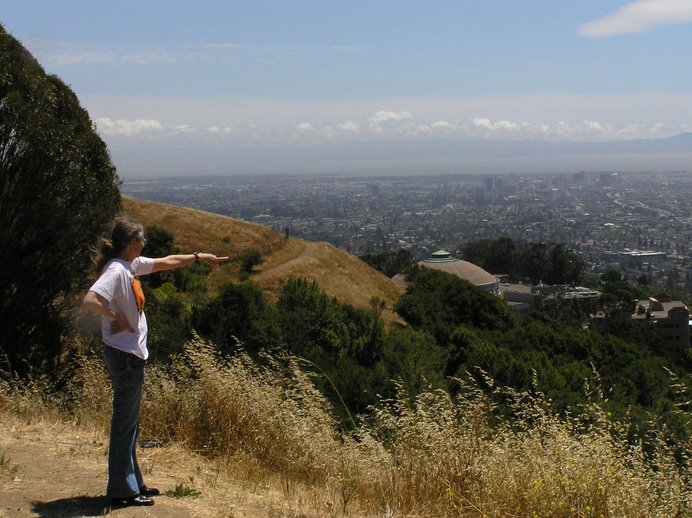


(Photos are of my family on Halloween, cleverly disguised as two cat burglars, a cat and a mad scientist)
Over here in Iran, I have gotten the chance to read more European papers and watch more European TV than I ever did back in the States -- and what I have discovered while reading up on the European POV is that Britain, Germany, France, etc. are currently in the midst of a terrible economic meltdown.
While it makes me sad to see individual Europeans hurting so much, does that make me feel sorry for Europe as a whole? Not really. Why should I? European nations have chosen their fate willingly and have simply received the logical consequences of their folly -- they trusted George Bush and he spit in their soup.
Back in 2003, Europe shoulda put its foot down. "Sorry, George, but invading Iraq is a REALLY stupid idea." But did Europe put its foot down? Nope.
Europe? It coulda-woulda-shoulda put its foot down with regard to Bush's so-called Roadmap to Disaster that has financed continual genocide in Gaza and the West Bank and also left Israel open and vulnerable to physical, economic and moral devastation.
According to the latest UN report on the Israel-Palestine situation, "Though the ceasefire had been generally effective in reducing the level of political violence, existing evidence showed a harsher regime of confinement and siege imposed on the population of Gaza. Such delays and denials of permission had resulted in a growing number of deaths, severe mental and physical suffering, and constituted a violation of the duty of the occupying Power to take all reasonable steps to protect the health and well-being of the population under occupation, [Richard Falk, Special Rapporteur for the United Nations] said."
But did Europe do anything to alleviate this accute humanitarian crisis? Not really.
And Europe could have put its foot down and said no to all of Bush's economic parlor tricks with the dollar that also put their euros at risk. Instead, Europe hardily embraced Bush's "shop til you drop" approach to credit. According to Iain Macwhirter of the New Statesman, "I visited Latvia at the height of the credit bubble 18 months ago, and it was clearly an accident waiting to happen. Riga, the capital, was bristling with upmarket shopping malls and classy bars that were all quite empty. Stalin-era flats were being sold for $200,000 in a country where the average wage was less than $400 a month. Latvia has hardly any industry, no energy and few natural resources apart from trees. But such was the irrational exuberance of foreign banks like Swedbank, [that] it was awash with credit."
Heck, even I could see the way things were going back then -- we were heading toward a war-torn world, an international financial crisis. Yet despite all the obvious handwriting on the wall between 2000 and now, Europe has blindly done nothing except kiss Bush's [hind-quarters].
But maybe I'm being too hard on Europe -- because Europe hasn't been operating in a vacuum all this time and hasn't been alone in its folly either. Imagine what Russia and China could have done to rein in Cowboy George too. And Japan, Latin America and Africa -- not to mention the Americans who freaking let GWB steal two elections and start an unnecessary war? Even Iceland could have made its move -- but no. Everyone just sat around idlely picking their noses and letting Bush, Cheney and them do whatever their little hearts desired.
And what has Bush done to reward such loyal behavior? He has spit in our soup.
.


























































